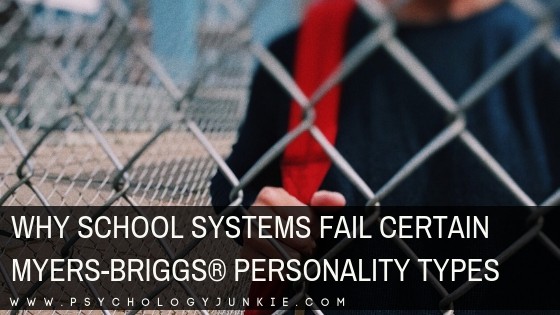10 Surprising Truths About ISFPs
“If we are peaceful, if we are happy, if we smile, and everyone in our family, our entire society, will benefit from our peace.”
– Thich Nhat Hanh – a rumored ISFP
ISFPs are one of the most underserved personality types in the Myers-Briggs® community. You’ll be hard pressed to find many articles about this enigmatic type, and they don’t flock to internet forums in the same capacity that many intuitives do. However, these individuals are deeply fascinating and have some amazing qualities as well as some unique struggles that are all their own. Let’s take a look:

10 Surprising Truths About ISFPs
#1 – ISFPs Notice What’s Missing
According to neuroscientist Dario Nardi, ISFPs show high activity in temporal region T5. This area runs along the equator of the head and is responsible for noticing when people withhold information. This region also helps us to engage in socially appropriate ways and respond to social expectations. ISFPs are very attentive to the body language of people around them and know intuitively how to react and respond to more than just what’s on the surface. ISFPs especially pay close attention to tone of voice and use that awareness to assess whether someone seems authentic or has hidden motives.
#2 – ISFPs are More Intuitive Than You Think
ISFPs have tertiary Introverted Intuition (Ni). This means that in times of rest or play they enjoy using this function to make predictions, strategize, and meditate on various perspectives. As you can see in this post, ISFPs rely heavily on temporal region T6. This region is what we use when we decide what will happen someday. It’s the region we rely on when we project how a situation will unfold. Quite a few ISFPs mistype as INFJs because online tests assume that the ability to make projections or to read between the lines is a characteristic of intuition, when in fact ISFPs are extremely capable of these things.
#3 – They Tend to Keep Their Anger Inside
Because ISFPs use Introverted Feeling (Fi) they tend to be private about their own emotions. While they indeed have very strong emotions they are wary of expressing them in the moment. According to the MBTI® Manual, ISFPs ranked highest in coping with stress by “Getting upset or angry and not showing it”. So if you think everything’s fine and dandy with an ISFP in your life, you may just not be paying close enough attention. They don’t particularly like to draw attention to their own feelings unless they trust someone very deeply.
#4 – ISFPs Deal with Emotional Exhaustion
According to the MBTI® Manual, ISFPs ranked highest on “emotional exhaustion” and “depersonalization” burnout scales. These types empathize and feel deeply for the concerns and cares of others and they also hold themselves to very high standards. They are also overrepresented in health care fields where they tend to give considerably of their emotional energy to their patients. It’s extremely important for them to take time for themselves and find support from friends or family members.
#5 – They’re Practical Feeling Types
A lot of people associate a preference for feeling with being illogical/flighty/emotionally unstable. These assumptions are incorrect, but especially so with ISFPs. Because they have auxiliary Extraverted Sensing (Se), they tend to be extremely realistic and focused on practical application. They excel in health care, the business world, and even law enforcement because they’re often able to think quickly in a crisis and find common-sense solutions that other types might not notice.
#6 – New Zealand Has the Highest Percentage of ISFPs
According to some sample studies done between 1985 and 1998, New Zealand has the highest percentage of ISFPs, making up 6.6% of the population. In the United States, ISFPs make up approximately 5.4% of the population.
#7 – A Lot of Famous Entertainers Are ISFPs
Jimmy Stewart, Audrey Hepburn, Prince, and Ryan Gosling are just a few of the entertainers rumored to be ISFPs. These types tend to have a natural gift for performing because it gives them an opportunity to express their deeply-held values and emotions, and it also utilizes their natural physical awareness and sensory precision to perform, dance or act with grace and emotional depth.
#8 – They Don’t Care Much for Tradition
Many people associate sensing with a desire for tradition, but ISFPs have no problem thinking outside the box. These types are generally very independent and like to do things in their own unique way. As an example, when I conducted a survey on type and education preferences, ISFPs were the only type who greatly preferred “unschooling” over public school, homeschooling, or private school. Most other types found unschooling to be too non-conformist or risky, but the majority of ISFPs found the idea of interest-led, independent learning attractive. That said, there were several ISFPs who had concerns about unschooling; but by far, more ISFPs were open to non-traditional education methods than other types.
#9 – They Often Excel in the Arts
According to truity.com, ISFPs “have a strong aesthetic sense and seek out beauty in their surroundings. They are attuned to sensory experience…ISFPs especially excel at manipulating objects, and may wield creative tools like paintbrushes and sculptor’s knives with great mastery.”
#10 – They’re More Focused on Action Than Talk
While Extraverted Feeling types tend to talk about their emotions and express them vocally, ISFPs tend to keep their emotions more private. They are more likely to show they care by doing kind, compassionate things for people. They are often hands-on and supportive of their loved ones; finding acts of service that will provide real, tangible results.
Want More Posts Like This? You Might Like These!
The Top 7 Gift Ideas For ISFPs
What Really Happens When an ISFP Is Stressed (Infographic)














“Quite a few ISFPs mistype as INFJs because online tests assume that the ability to make projections or to read between the lines is a characteristic of intuition, when in fact ISFPs are extremely capable of these things.” I am so glad you made that point. The first time I took the test instrument in a session with a psychologist, before I had ever heard of Myers-Briggs, I was identified as INFJ. So that’s interesting to me that you made the above clarification, because I knew, after studying much more about the Myers-Briggs for several years following, that I definitely wasn’t INFJ. My strong suit is music (piano), and has been since I was 5 years old. I got even more confused when I assumed that the amount of advanced education I have (B.A., B.S., and M.B.A.) must mean I am an NT….so I went down that track for a while. I am still confused, however as to how I.Q. fits in with type….